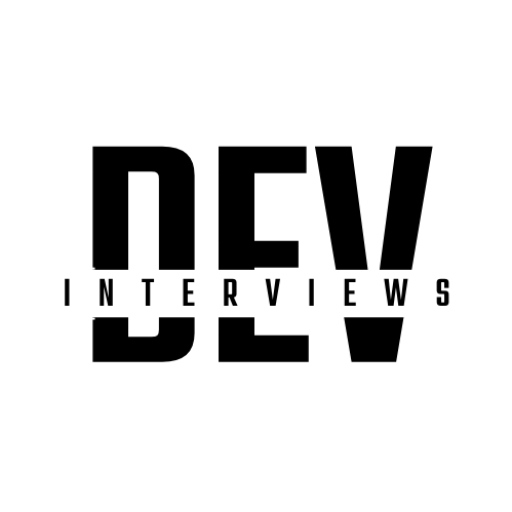As remote work becomes increasingly common, job seekers must adapt their interview preparation strategies to meet the specific demands of remote positions. Unlike traditional, in-person interviews, remote interviews present unique challenges—ranging from technical setup to communication nuances. In this article, we will cover essential tips to help you navigate a remote job interview, ensuring you present yourself as a strong candidate for remote work.
1. Test Your Technology
Remote job interviews rely on technology, so ensuring everything runs smoothly is crucial. Before the interview, take the time to prepare your setup:
- Check your internet connection: A stable and fast internet connection is essential. Conduct a speed test to verify that your connection can handle video conferencing without interruptions.
- Familiarize yourself with the software: Most remote interviews are conducted via platforms like Zoom, Microsoft Teams, or Google Meet. Download and test the software ahead of time to avoid last-minute technical issues.
- Test your webcam and microphone: Ensure both your camera and microphone are working correctly. Position your camera at eye level, and check the lighting in your environment so that your face is clearly visible.
- Have a backup plan: If possible, have a backup internet connection (like a mobile hotspot) and a second device ready, just in case your primary equipment fails.
2. Choose a Professional, Quiet Environment
The environment in which you conduct the interview is just as important as your technical setup. Here are some tips to create a professional atmosphere:
- Find a quiet, distraction-free space: Choose a room where you can close the door and minimize distractions from family, pets, or background noise. Use noise-cancelling headphones if needed.
- Consider your background: A clean, neutral background is ideal. Avoid clutter, and ensure there’s nothing behind you that could distract the interviewer. Alternatively, you can use a virtual background, but keep it simple and professional.
- Good lighting: Natural light is best, but if that’s not possible, use a lamp that illuminates your face evenly.
3. Master Remote Interview Etiquette
Remote interviews require a slightly different set of manners compared to in-person interviews. Follow these etiquette tips to make a positive impression:
- Be punctual: Join the meeting a few minutes early to show your punctuality and to ensure that everything is working.
- Make eye contact: Look at your webcam when speaking, not the screen. This simulates eye contact, making you appear more engaged and confident.
- Mind your body language: Sit up straight and maintain a professional posture. Avoid fidgeting or slouching, as these behaviors can be more noticeable on camera.
- Limit interruptions: Silence your phone and other notifications to prevent distractions during the interview.
4. Prepare for Technical and Behavioral Questions
Interviewers for remote positions often assess both your technical skills and your ability to work independently. Prepare for the following types of questions:
- Technical questions: Depending on the role, you might be asked about your proficiency with remote collaboration tools (e.g., Slack, Trello, or Zoom) or about solving job-specific problems. Be prepared to explain your technical setup and how you troubleshoot issues on your own.
- Behavioral questions: Remote work requires a high degree of self-motivation and communication. Expect questions like:
- “How do you stay organized and manage your time while working remotely?”
- “Describe a situation where you had to resolve a conflict with a coworker remotely.”
- “How do you ensure effective communication with your team in a remote environment?”
5. Highlight Remote Work Skills
When preparing for a remote interview, focus on showcasing the skills that are particularly important for remote work:
- Self-motivation: Demonstrate that you can work independently without constant supervision. Provide examples of how you’ve managed projects or tasks efficiently in the past.
- Communication skills: Remote work relies heavily on clear and effective communication. Mention tools like email, chat apps, or video calls that you’ve used to collaborate with colleagues.
- Time management: Highlight your ability to manage your time and prioritize tasks in a self-directed environment.
- Adaptability: Remote work often involves adapting to different time zones and collaboration styles. Share examples that show you are flexible and capable of working across teams or regions.
6. Ask the Right Questions
At the end of the interview, you’ll likely have an opportunity to ask questions. Use this time to demonstrate your interest in the role and to gather important information about the company’s remote work culture:
- “How does the company ensure effective communication and collaboration among remote teams?”
- “What tools and technologies do you use to support remote work?”
- “How does the company handle time zone differences when working with a global team?”
- “What does a typical day look like for someone in this remote position?”
- “How do you measure success for remote employees?”
7. Practice and Prepare
Lastly, practice is key to building confidence for your remote interview. Conduct a mock interview with a friend or use an online service to simulate the remote interview experience. Pay attention to your timing, tone, and how you present yourself on camera.
Final Thoughts
Interviewing for a remote job requires a blend of technical preparation, effective communication, and an understanding of the unique challenges remote work presents. By testing your technology, creating a distraction-free environment, and preparing for both technical and behavioral questions, you can position yourself as the ideal candidate for a remote role. With the right preparation, you’ll be ready to ace your remote job interview and secure your next opportunity.



